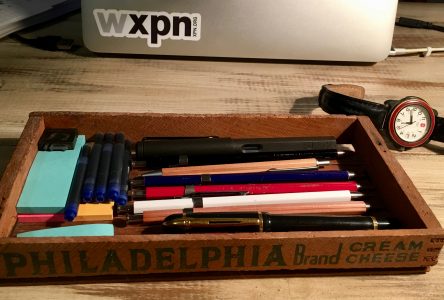Jacob Walsh
Odell does a good job in the first half of the book by allowing her readers to figure out the lessons she is trying to teach by not only using her own words but by using anecdotes and examples from other artists to further her points and give the readers a better understanding of what she is trying to say. After reading half the book, I feel the most valuable lesson or idea she is trying to portray to her readers is being observant, and not so caught up with themselves. With the evolution of technology and the pursuit of our own goals, it is easy to be narrow minded and focused on what we are trying to do ourselves and not be aware of what is going on around us. Odell uses examples like “bird watching” or projects by other artists such as Scott Polach or Eleanor Cappola that celebrate life and work that already exists rather than focusing on creating something new or trying to become the center of attention themselves. The Bird watching example as explained in the first chapter teaches us to pay attention to the small things in life, really focus in on something that the common human being overlooks in everyday life; the sound of nature and other creatures itself. The project by Scott Polach was simply a bunch of folding chairs, closed off by red rope on a cliff in San Diego overlooking the sea. Viewers looked over the coast and watched the sunset as they were told not to take any pictures, but instead take everything in for what it was and really appreciate what was going on around them. Eleanor Cappola is an artist that created a piece of art which had one purpose only, and that was to appreciate the art pieces made before it, instead of trying to make her own piece the center of attention. These pieces all had one thing in common, and that was the main purpose was to intend to have their viewers and participants to become more observant of their surroundings and the things that already existed around them. While this may seem simple, the fast pace of modern day life tends to have us overlook these things, while Odell is trying to emphasize the importance of taking a step back and realizing what we already have.
We live in a capitalist driven country, where your success tends to be valued on your accomplishments and the amount of money you make. I feel that a lifestyle driven by these goals cannot only be very stressful but create an unhealthy environment. The celebrities and large corporation owners we all famously know are held at high praise for their glamorous achievements and extraordinary wealth. As a society, we hold these people on a high pedestal for this reason, and aspire to be just like them. I felt it was important to emphasize this lesson in the first half of Odells book because as a community we need to be appreciative of the accomplishments we have made together as one. We are alway trying to see how we can make things better, go a step further, and after that, we are already looking at how we can top those feats. We sometimes forget to take a step back and see what we have already done and accomplished together as a human race. I feel that it is important to emphasize that I don’t think Odell is trying to tell us to be content, and have no goals, but instead to slow down once in a while and take in things we may overlook. I feel another large part in why we are so fast paced in our way of living is the advancements in technology we have seen growing up in the 21st century. We have seen everything, from the first smartphone to the first autonomous driving cars. With mind boggling progress such as this, we forget to take in the surroundings of our world like, in her example, listening to the birds chirp, realizing there are amazing things like the fact they have their own unique ways of communicating with each other. I feel that doing things helps make the world feel a little smaller and not so overwhelming.
I felt that this lesson or ideal was a significant one to bring up considering the challenges and the hecticness 2020 has brought us in one year. We have seen legends and faces in our community tragically pass, a spread of an international virus and splits in our communities. Being more observant can help make things simpler, or help you see a perspective you may have not taken the time to see. Being aware of your surroundings helps us become more informed as a community and allows us to better understand each other and the current issues going on in our country. Now I am not saying that Odell’s lesson of being more observant and aware will solve all issues, but I do believe by doing small things that she states in her book can allow people to better understand the things going on around us, rather than being so focused on our own goals, wants and desires. I know that reading and analyzing Odell’s work has helped me understand some things that I may have overlooked in the past, and that is what I think Odell is trying to convey to all of her readers.



